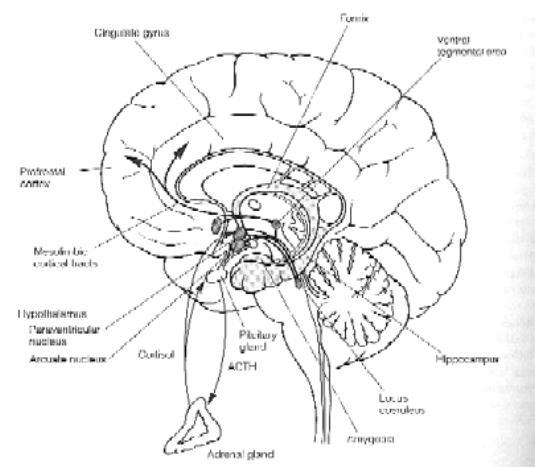

| ~~Neuropsychology~~ |
Kolb, B. & Whishaw, I.Q. (1995). Fundamentals of Human Neuropsychology (4th ed) New York: W.H.Freeman and Company
| Are you feeling a little brainless lately? |

|
Do you want to learn more about the nervous system? |
Neurons are cells that act as the integrating units of the nervous system, and although they share many characteristics of other cells in the body, they also have special characteristics that help them perform their functions...Neurons in the brain, once formed, do not regenerate, and unless they suffer lethal damage, most live as long as the person in which they are found. Each neuron is separated from physical contact with other neurons; it communicates across this separation using a language that is chemical. Neurons vary enormously in size and shape, the differences bearing evidence of each neuron's particular adaptation to its specialized function. Neurons are aggregated into communities, or nuclei, each of which makes a aspecial contribution to behavior. Neurons change their behavior with experience; they learn, remember, and forget. Neurons can malfunction, causing disruptions in normal behavior. During development, far more neurons are created than will utimately survive, and so cell death is a pronounced developmental stage in sculpting the adult brain. Neurons that leave the central nervous system (CNS), such as sensory neurons and motor neurons, retain the capacity to regenerate. In adults, the stem cells that originally gave rise to the brain's cells remain and retain the ability to generate new cells. (p.64-5)
A more detailed and descriptive version of


